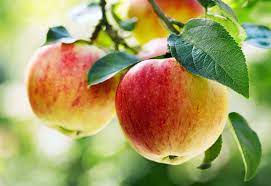Kathmandu | July 28, 2025
As climate change, soil degradation, and unpredictable rainfall continue to challenge traditional farming in Nepal, an age-old technique-tree grafting-is making a strong comeback, offering both financial rewards and environmental resilience for smallholder farmers.
Tree grafting, the process of joining a desired fruit-producing branch (scion) to a resilient rootstock, is gaining traction particularly in hilly and mid-hill regions of Nepal, including Kaski, Kavrepalanchok, Dhading, and Ilam, where apple, pear, citrus, and avocado farming are on the rise.
From Patience to Profit: Grafted Apple Trees in Mustang
In Mustang, farmers who once relied solely on traditional apple trees-which often took 7-10 years to bear fruit-have now shifted to grafted apple saplings, which bear high-quality fruit within 3–4 years. According to the Agriculture Knowledge Centre in Mustang, grafted apple trees have increased annual yields by up to 60%, allowing farmers to sell apples worth over NPR 500,000 per hectare, compared to just NPR 180,000 from traditional trees.
Citrus Success in Sindhuli
In Sindhuli, the local citrus cooperative has adopted grafting techniques for oranges and lemons, combining disease-resistant rootstock with high-yielding varieties. This has helped farmers reduce pest-related losses by up to 40%, significantly lowering dependency on chemical pesticides and improving fruit quality for export markets like India and Bangladesh.
Why Grafting Matters for Farmers’ Financial Health
Experts from the Ministry of Agriculture and Livestock Development (MoALD) explain that grafting is not only an agricultural innovation but also a cost-effective investment:
Benefit Financial Impact
Early fruiting Faster income generation (3-4 years)
Higher yield Up to 2–3 times more production
Better fruit quality Access to export markets
Resilient rootstocks Lower crop failure risk
Multi-variety options Diversified income from single tree
A Way Forward for Sustainable Farming
Agricultural scientist Dr. Lila Bahadur Tamang notes, “Grafting is the bridge between tradition and innovation. It empowers Nepalese farmers to preserve indigenous fruit varieties while ensuring economic stability through improved productivity.”
Training programs supported by NGOs like LI-BIRD, ICIMOD, and Agri-Centre Nepal are already helping hundreds of farmers learn grafting techniques, with many expressing hope that this practice can combat poverty, reduce imports of foreign fruit, and improve food sovereignty.
Government’s Role and Future Support
In the recent Agricultural Development Strategy review, the government emphasized increased funding and extension services for orchard establishment using grafted saplings. Subsidies on grafted saplings and toolkits have been proposed for the fiscal year 2025-26.
With Nepal importing fruits worth over NPR 18 billion annually, promoting local grafted orchards could drastically reduce the trade deficit while uplifting rural livelihoods.
Conclusion
As farming becomes riskier in a warming world, grafting offers a solution rooted in nature, science, and tradition. For Nepalese farmers, it is not just a technique—it's a lifeline for long-term sustainability and prosperity.